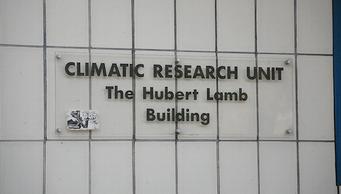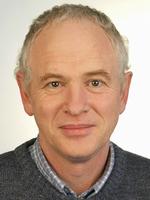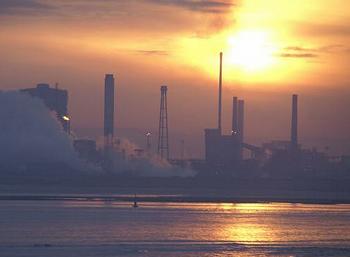The Case of the Stolen Climate Emails
NORWICH, UK, December 5, 2009 (ENS) - On Tuesday, November 17, the webmail server at the University of East Anglia was hacked and a file including over 1,000 emails sent from or sent to members of the Climatic Research Unit at the university was stolen. The emails were posted on several public websites, although the breaking into of computers and releasing private information is illegal, and posting private correspondence without permission is unethical.
A police investigation is currently underway to determine who stole the file and the university has launched an independent review of the incident that will be headed by Sir Muir Russell, who chairs the Judicial Appointments Board for Scotland. The review will examine the hacked email exchanges, other relevant email exchanges and any other information held at CRU to determine whether there is any evidence of the manipulation or suppression of data which is at odds with acceptable scientific practice and may therefore call into question any of the research outcomes.
Contrary to misinformation that is making the rounds of ill-informed publications, the UK's Hadley Center Climate Research Unit is not involved in this incident.
Meanwhile, the leaked emails have provoked heated debate because some of the language they contain could be interpreted to mean that the climate scientists who wrote them were trying to hide a decrease in global warming.
 |
The Climatic Research Unit entry sign at the University of East Anglia (Photo by Cameron Self) |
The person whose emails are at the center of controversy, Professor Phil Jones, director of the Climatic Research Unit, said on December 1 that he will stand aside as director until the completion of the Independent Review to ensure that CRU can continue to operate normally.
Jones acknowledges that an email of his from 1999, which he confirms is genuine, has "caused a great deal of ill-informed comment." But he says "it has been taken completely out of context and I want to put the record straight."
Jones wrote in the email, "I've just completed Mike's Nature trick of adding in the real temps to each series for the last 20 years (ie from 1981 onwards) and from 1961 for Keith's to hide the decline."
Jones continued in the email, "Mike's series got the annual land and marine values while the other two got April-Sept for NH land N of 20N. The latter two are real for 1999, while the estimate for 1999 for NH combined is +0.44C wrt 61-90. The Global estimate for 1999 with data through Oct +is 0.35C cf. 0.57 for 1998."
"The first thing to point out," said Jones in a statement on November 24, "is that this refers to one diagram - not a scientific paper - which was used in the World Meteorological Organisation's statement on the status of the global climate in 1999 (WMO-no.913)."
"The diagram consisted of three curves showing 50-year average temperature variations for the last 1000 years," he said. "Each curve referred to a scientific paper and a key gives their details."
"Climate records consist of actual temperature records from the mid-19th century and proxy data (tree rings, coral, ice cores, etc) which go back much further. The green curve on the diagram included proxy data up to 1960 but only actual temperatures from 1961 onwards. This is what is being discussed in the email," Jones explained.
 |
Professor Phil Jones (Photo courtesy U. East Anglia) |
"The word 'trick' was used here colloquially as in a clever thing to do. It is ludicrous to suggest that it refers to anything untoward," Jones said.
"The use of the term 'hiding the decline' was in an email written in haste," he said. "CRU has not sought to hide the decline."
Jones said the timing of the theft suggested it was intended to cause maximum embarrassment ahead of the Copenhagen climate talks from December 7-18.
"One has to wonder if it is a coincidence that this email correspondence has been stolen and published at this time," Jones said. "This may be a concerted attempt to put a question mark over the science of climate change in the run-up to the Copenhagen talks."
Climate skeptics have been using the University of East Anglia emails to undermine attempts to limit greenhouse gas emissions at the Copenhagen conference and elsewhere.
In the UK, the former science advisor to Lady Margaret Thatcher, Lord Christopher Monckton, says the CRU scientists "bent and distorted scientific data to fit a nakedly political story-line profitable to themselves and congenial to the governments that, these days, pay the bills for 99 percent of all scientific research."
 |
Lord Christopher Monckton (Photo courtesy ECCC) |
Monckton alleges that the emails reveal that "The CRU at East Anglia had profited to the tune of at least $20 million in 'research' grants from the activities of these scientists.
He alleges that the CRU scientists "tampered with the complex, bureaucratic processes of the United Nation's Intergovernmental Panel on Climate Change (IPCC), so as to exclude inconvenient scientific results from its four Assessment Reports, and to influence the panel's conclusions for political rather than scientific reasons."
In the U.S. Senate, Senator James Inhofe, an Oklahoma Republican, has called for hearings to be conducted on the emails which he says contain, "apparent attempts to manipulate data, vilify scientists with opposing viewpoints, and circumvent information disclosure laws."
"The emails reveal possible deceitful manipulation of important data and research used by the US Global Change Research Program and the IPCC [Intergovernmental Panel on Climate Change]," wrote Inhofe, the Ranking Member of the Senate Committee on Environment and Public Works.
"For instance, one scientist wrote of a 'trick' he employed to 'hide the decline' in global temperature trends, as well as discussed attempts to 'redefine what the peer-review literature is' to prevent papers raising questions about anthropogenic global warming from appearing in IPCC reports," Inhofe wrote, referring to Jones' email of 1999.
This controversy "could have far-reaching policy implications," Inhofe continued, "affecting everything from (to name a few) cap-and-trade legislation, state and regional climate change programs," and the Environmental Protection Agency's Proposed Endangerment and Cause or Contribute Findings for Greenhouse Gases Under Section 202(a) of the Clean Air Act."
"These policies will have enormous economic impacts, not least the EPA's proposed endangerment finding, which, when finalized, will lead to a torrent of new federal regulations that will destroy thousands of jobs and make electricity and gasoline more expensive for consumers and small businesses," Inhofe wrote.
This endangerment finding would give the EPA authority to regulate heat-trapping greenhouse gases without waiting for Congress to pass a law regulating them. The House of Representatives passed its version of a climate change bill in June, but the Senate will not debate its version until next spring. Earlier this week, the EPA received a citizens' petition to regulate carbon dioxide under the Clean Air Act.
U.S. climate scientists are among many who are trying to assure Congress and the public that the content of the stolen emails has no bearing on scientists' overall understanding that human activity is causing global warming.
 |
Sunrise over the Teesmouth industrial area, England (Photo by Ian Britton courtesy FreeFoto.com) |
On Friday, 25 U.S. scientists sent an open letter to Congress saying, "The content of the stolen emails has no impact whatsoever on our overall understanding that human activity is driving dangerous levels of global warming."
The letter's signatories include eight members of the National Academy of Sciences, including University of California, Berkeley Professor Inez Fung; University of Washington Professor Edward Miles; and Scripps Institute of Oceanography Professor and Nobel Laureate Mario Molina.
"Even without including analyses from the UK research center from which the emails were stolen, the body of evidence that underlies our understanding of human-caused global warming remains robust," they wrote.
The letter states that "opponents of taking action on climate change have misrepresented both the contents and the significance of stolen emails to obscure public understanding of climate science and the scientific process."
The scientists' letter underscores the importance of scientific integrity to climate research. "The scientific process," the letter states, "depends on open access to methodology, data, and a rigorous peer-review process."
Additionally, the letter cites an October 21, 2009 letter to Congress from 18 U.S. scientific organizations, including the American Association for the Advancement of Science, the American Geophysical Union and the American Meteorology Society, stressing that conclusions that human activities are the primary cause of global warming are based on "multiple independent lines of evidence."
Back in the UK, a November 24 statement on global warming from the Met Office, the Natural Environment Research Council and the Royal Society confirms the scientific consensus, saying, "Climate scientists from the UK and across the world are in overwhelming agreement about the evidence of climate change, driven by the human input of greenhouse gases into the atmosphere."
"As three of the UK's leading scientific organizations, involving most of the UK scientists working on climate change, we cannot emphasize enough the body of scientific evidence that underpins the call for action now, and we reinforce our commitment to ensuring that world leaders continue to have access to the best possible science. We believe this will be essential to inform sound decision-making on policies to mitigate and adapt to climate change up to Copenhagen and beyond."
Copyright Environment News Service (ENS) 2009. All rights reserved.
To subscribe or visit go to: http://www.ens-newswire.com